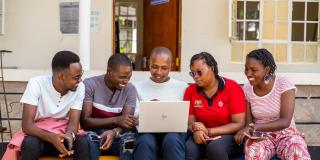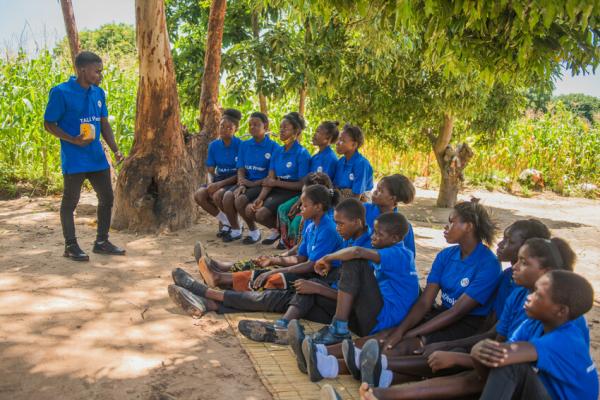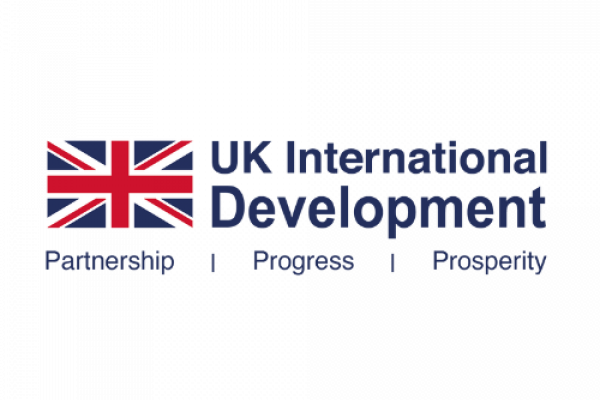
Citizen-Led Monitoring (CLM) addresses inequality and poverty by providing citizens with a means to advocate for equitable access to quality public services.
Through participatory monitoring and learning approaches, CLM addresses power dynamics within communities by providing citizens with the information and opportunity to actively engage in making public authorities and duty bearers accountable and responsive to the needs of citizens in line with the Sustainable Development Goal 16, promoting peaceful and inclusive societies.
In line with VSO’s People First approach, CLM enables primary actors to tell their own stories, share how public services impact their lives and articulate the changes they wish to see in public service provision. In VSO programmes, volunteers play a key role in training and guiding communities in the use of CLM. By amplifying citizens' voices and participation in generating data and evidence and using it meaningfully, VSO fosters local active citizenship that drives positive change.
5,892 vulnerable youth have engaged with the scorecard in Ethiopia
Over 1,600 community members have been reached directly in Zambia.
48 community health volunteers have been trained in health service tracking in Zambia.
Ethiopian youth champions monitoring of sexual and reproductive health rights
In Ethiopia, over 80% of young people face barriers to accessing quality healthcare and youth are often overlooked in public policy making and implementation.
To address this issue, the Dutch government-funded Make Way programme promotes affordable, accessible and quality sexual and reproductive health services for over 20,000 vulnerable youth in three regions of Ethiopia (and supports similar work in parts of Kenya, Uganda, Rwanda and Zambia).
Through the concept of intersectionality the Make Way programme recognises that young people face multiple vulnerabilities related to their gender, sexuality, ethnicity, and socio-economic backgrounds. The interconnectedness of these vulnerabilities creates complex systems of discrimination or disadvantage for vulnerable young people.
A key component of the Make Way programme is the youth-led Intersectional Community Scorecard (ICSC), a CLM tool that gives these young people a platform through which they can share their experiences. Through the ICSC, youth community facilitators empower marginalised youth to identify health barriers, collect evidence and develop solutions collaboratively with health providers and community representatives.
After the ICSC was implemented, youth reported that the accessibility, acceptability, availability and quality of sexual and reproductive health (SRH) services were enhanced. For example, health service providers established SRH youth comers and offered weekend services to schools in the catchment area.
Additionally, feedback mechanisms have been established for vulnerable service users to report discrimination or unfriendly behaviours, enhancing youth participation in facility management and quality improvement processes. The programme has significantly improved providers' attitudes with trainings and strengthened monitoring and accountability systems, such as digital staff logins to ensure punctuality and availability during working hours.
Community health awareness has also been raised through events and billboards highlighting health and SRH services, facilities’ locations and working hours. The ongoing use of the ICSC is expected to deepen the involvement of vulnerable youth in strengthening the health system in Ethiopia and the other four countries where the Make Way programme is being implemented.
Transparency and collaboration through community score cards in Nepal

In Nepal the Active Citizenship for Inclusive Volunteering and Empowerment (ACTIVE) programme,
funded by UK International Development, is using the Community Scorecard (CSC) to empower citizens and enhance social accountability and transparency. The tool, which also works as a process, aims to promote collaboration, dialogue, and shared decision-making between right holders and duty bearers.
Community volunteers are crucial in driving the CSC at the grassroots level. They engage citizens in planning, implementing, and evaluating maternal, neonatal and child health services. Using this tool, they facilitate marginalised community members coming together to discuss their issues and concerns and to identify their own needs.
Through interface dialogues, they are then able to share these with duty bearers and develop collaborative action plans to address the identified issues. This is followed by annual reviews with active engagement of both right holders and duty bearers to monitor and ensure alignment and effectiveness, and to support continuous improvement and empowerment within the community.
Through these steps, the CSC process establishes a framework for participatory governance and community-driven development, reinforcing the project's commitment to fostering lasting change and empowerment.
Over the first two years of the ACTIVE project, VSO conducted 12 rounds of CSC led community discussion, engaging 320 citizens and 249 duty bearers directly. The transformative potential of CSCs is evident across diverse communities, aligning with the Sustainable Development Goals (SDGs).
The community score cards have brought many benefits. The most marginalized now go to community hospitals, which was not the case before.Amrita SahaniVolunteer in Nepal
In Gaur, adolescents have become more confident in accessing contraception from the local facility. In Sabgada, there has been an increased awareness and understanding of health services, leading to easier access and open discussions about health concerns, contributing to SDG 3. The community has also seen a positive integration of health and education with the distribution of medicines in schools, aligning with SDG 4, which promotes holistic education and lifelong learning opportunities.
Similarly, the increased prioritisation of marginalised individuals in health interventions aligns with SDG 5, ensuring women's full and effective participation and equal opportunities for leadership in decision-making.
The increased community involvement facilitated by CSC initiatives directly contributes to SDG 16 by promoting effective, accountable, and transparent institutions.
By addressing key issues such as health, education, and livelihoods, CSC initiatives contribute to broader efforts towards sustainable development. This integration underscores the importance of community-led approaches in achieving global development goals.
ACTIVE volunteers transforming essential healthcare in Zambia

In Zambia, ACTIVE project volunteers are facilitating the Continuity of Essential Health Services (CES) during health emergencies. The project is promoting participatory monitoring through the CES tracker tool developed in collaboration with the World Health Organisation in response to the COVID 19 pandemic. The tool captures user feedback, raising community awareness, and amplifying community voices to identify and address service disruptions.
The tracker detects interruptions in essential services, the causes, affected populations and the community's aspirations for solutions. For instance, the tracker has highlighted disruptions in family planning services, medicine stock-outs, supply chains and treatment for respiratory infections and malaria.
In all six facilities where the CES tracker was implemented, there was a noted lack of awareness about community health services, leading to self-prescription, the purchase of medicines from informal services and an increase in unplanned and teenage pregnancies.
The CES tracker, led by community members and volunteers, is pivotal in keeping essential health services in check, and has helped support the design of behaviour change campaigns and the engagement of the government and aid actors to maintain CES operations.
Data collected by volunteers has led to an increased demand for health services, as patients became aware of all the available services. It has prompted actions towards building a new health facility and construction of ramps to ensure inclusive access for wheelchair users, and it has also highlighted the need to offer mental health services and to develop a climate-resilient health system.
This citizen-led monitoring has contributed to enhancing the quality of health services, ensuring that they effectively reach those who need them most. Through engagements such as interface meetings there have been improvements in the capacity of the local council and Ministry of Health at district level to deliver inclusive, accountable, and quality basic services in health to local people.
For example, after volunteers identified stock outs of medicines as a major issue, local pharmacists were supported by the district health officer to address the issue and develop a plan to improve the supply in the future.
Doctors in Zambia improve health services through community feedback
Mutukwa Tembo is the Clinical Officer General and the focal point for adolescents at the Samfya Stage II Clinic, in Zambia. Through the ACTIVE programme, his clinic has implemented the CES tracker.
“The data collected was evaluated, and then we met with community gatekeepers, stakeholders and facility personnel to review the information. It gave us a true picture of the community’s views,” he explains. For instance, during COVID-19, services like voluntary male circumcision and family planning services were interrupted, despite being highly valued by the community.
“This data collection is of paramount importance, as it helps us plan ahead and prepare should another pandemic hit,” he adds

About ACTIVE
The ACTIVE programme is a multi-year grant from the UK government, worth £27m, running from April 2022. The programme supports the development of active citizenship across the Global South, so marginalised people are able to lead their own development, claim their rights to better public services and hold people in power to account.
